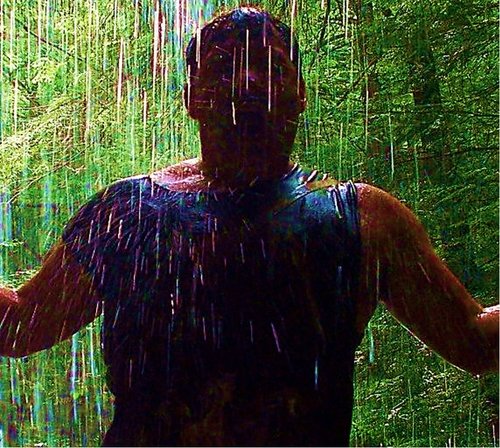MOVIE REVIEWS
 Review by John Chard
Review by John Chard
The Casterbridge Claim. "Thy Kingdom come, thy will be done, on earth as it is in heaven" Michael Winterbottom directs what is in essence a Western version of Thomas Hardy's The Mayor of Casterbridge. It's Sierra Nevada, California, 1867 and the pioneer town of Kingdom Come is thriving under the strict but effective rule of Daniel Dillon (Peter Mullan). Dillon came by way of a gold claim many years earlier by way of a trade, the barter? His wife and child. But now the past is about to catch up with him and Kingdom Come could well turn out to be his burning hell... Right off the bat it has to be said that The Claim is a difficult film to recommend, even to Western movie lovers. It's deliberately slow and purposely elegiac and ethereal. The literary aspects of the narrative positively sparkle, yet still this doesn't make the story any more vibrant, because Winterbottom and screenplay writer Frank Cottrell Boyce want to keep things in perspective. In a film that is awash with untold beauty, the snowy mountainous landscapes (Calgary standing in for California) stunningly photographed by Alwin H. Küchler, it's perpetually cold and bleak, the ice and snow a constant that marries up with characters who are deliberately hard to like. Technically this is one superior piece of work. Küchler and Winterbottom's panoramas are sublime, the town is strikingly designed by the art department, all wooded angles and smoking chimneys that are magnificently framed by the mountains, while the sound-mix thunders the ears and adds another dimension to the grubby realistic feel. Interior sequences are filmed in low lights, making the lamps spectral in sight, the costume design and the narrative strength of the town whorehouse (which is the fulcrum of proceedings) have a class about them that shines bright in the pantheon of modern era produced Westerns, while Michael Nyman's musical score is evocatively strong. The cast respond well to Winterbottom's requirements, Mullan, Wes Bentley, Sarah Polley, Milla Jovovich and Nastassja Kinski (how nice to see the latter twin euro beauties stripped of make up to show a natural era sexiness) all turn in charismatic and heartfelt performances. Narratively the film is driving towards Dillon's day of reckoning, his shoulders heavy with regret and his soul in desperate need of purging. In the interim we are privy to the lives and loves of the townsfolk, their foibles, faults and fancies, this while the town is alive with the arrival of the railroad company, who it is hoped by Dillon will make Kingdom Come prosper still further... Unfair comparisons have been drawn with Robert Altman's McCabe & Mrs. Miller. Yes, this is similar in style and execution, but why not just see it as the perfect companion piece to Altman's movie? Because it is. How about we instead look at the finale? Which draws a favourably thematic link to the brilliant Boetticher/Scott Western, Ride Lonesome. When push comes to shove, and in honest terms, The Claim is a film that for sure may be hard to love, but it sure as heck fire is a film that is easy to admire. Western fans should see it because they "will" take something positive from the experience. 8/10
 Review by Wuchak
Review by Wuchak
***The beginning and end of a boom town in the Sierra Nevadas*** During the California gold rush of 1849 a desperate man establishes a boom town in the Sierra Nevadas. Eighteen years later his abandoned wife & daughter (Nastassja Kinski & Sarah Polley) ride into town and turn his life (Peter Mullan) upside down. Milla Jovovich plays his singing saloon babe while Wes Bentley is on hand as a surveyor for the railroad that’s coming through. “The Claim” (2000) is a top-of-the-line Western that inexplicably fell through the cracks when it was released. It has similarities to “McCabe & Mrs. Miller” (1971), but with more interesting characters, a more compelling story and spectacular locations, not to mention less focus on a house of ill repute. If you appreciate grim, realistic Westerns like “The Great Silence” (1968), “Bad Company” (1972), “The Missouri Breaks” (1976), “Heaven’s Gate” (1980), “Unforgiven” (1992) and “North Star” (1996), you’ll like this one. It’s as good or, in most cases, better. I should add that it’s not all grim; there are glimmerings of light. The film runs 2 hours and was shot at Fortress Mountain, Kananaskis Country, Alberta, with the train sequences filmed in Durango and Silverton Narrow Gauge Railroad, Colorado. GRADE: A-/B+